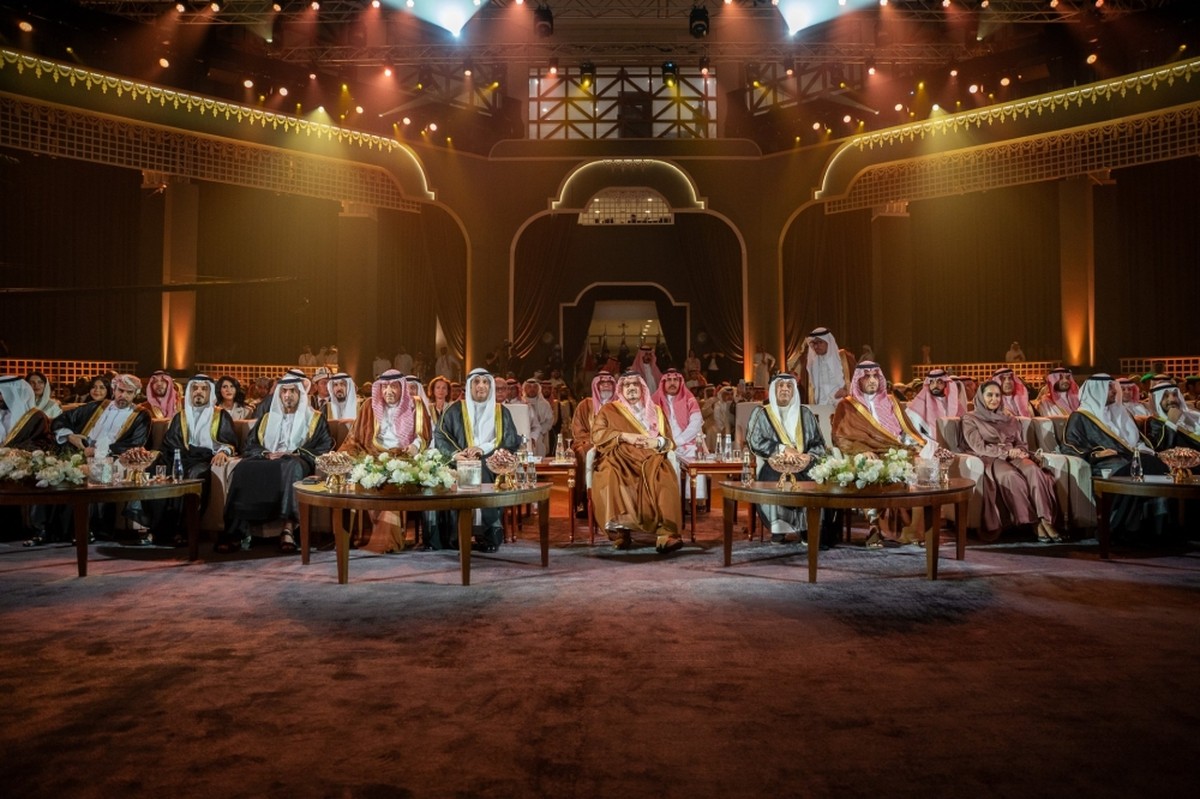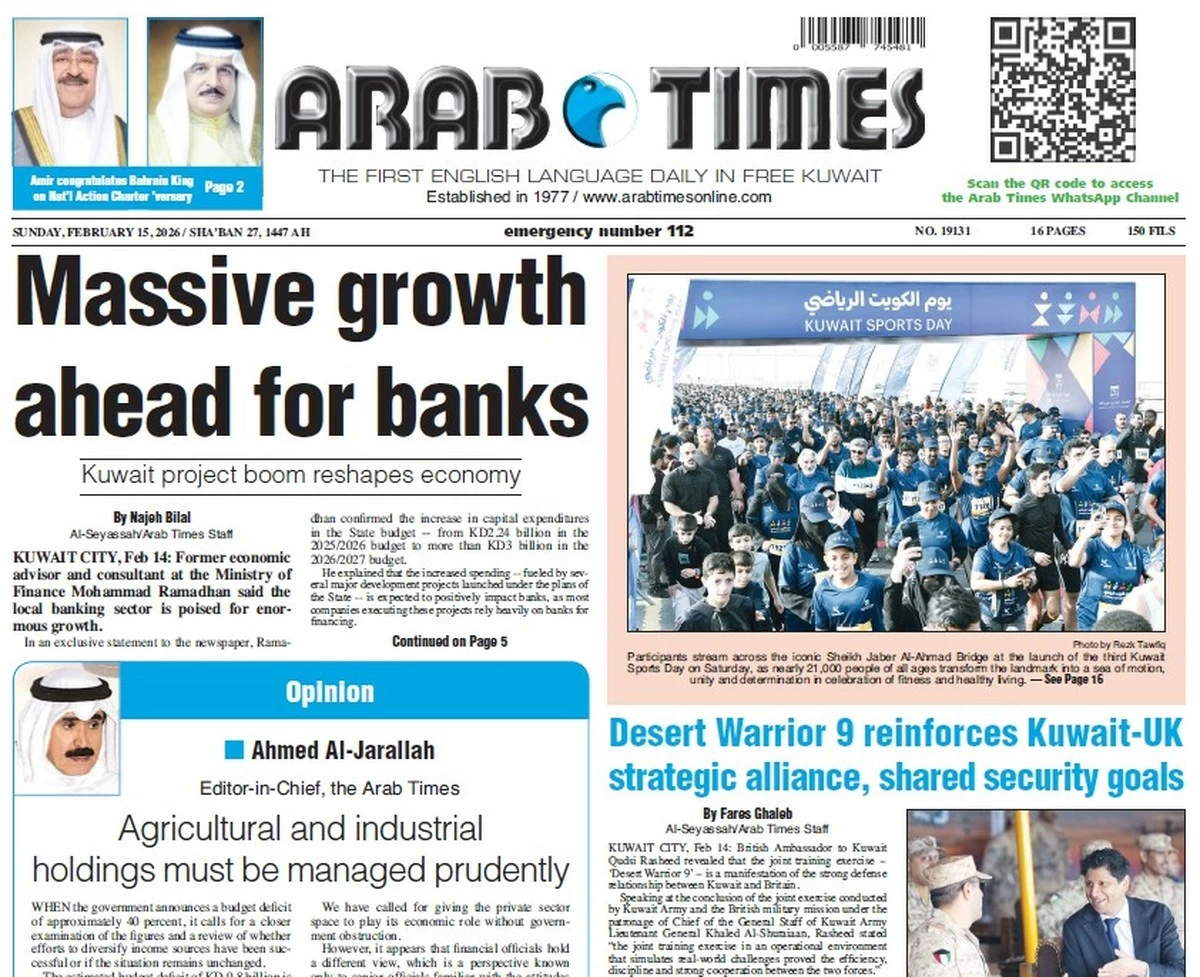25/05/2025
25/05/2025

RIYADH, Saudi Arabia, May 25: Gulf Cooperation Council (GCC) Secretary General Jassem Mohammad Al-Budaiwi described the Council’s journey as “an example to be followed in unity, effective integration, and constructive cooperation, making it a pioneering model regionally and internationally.”
Speaking during the celebration of the 44th anniversary of the Council’s establishment at the GCC Secretariat in Riyadh late Saturday, Al-Budaiwi expressed pride in continuing the path that began on May 25, 1981. He conveyed appreciation for the progress made in joint Gulf cooperation and integration across various fields.
“During our celebration today of the 44th anniversary of the launch of the blessed journey of the GCC,” he said, “we recall with pride and loyalty the insightful vision of the founding leaders who laid the solid foundation for this great institution, relying on deep fraternal ties, shared destiny, and common history among their peoples.”
He affirmed that despite regional and international challenges, the Council’s path remains a model of unity and integration, highlighting its growing role across multiple fields. “The member states have become a model for collective action and a reliable partner regionally and internationally,” he said, noting that strategic vision and balanced policies had drawn the world’s attention and supported security, peace, and sustainable prosperity.
Al-Budaiwi emphasized the Council’s growing diplomatic presence, citing the recent Gulf-European and Gulf-American summits and upcoming summits with ASEAN and China. “This clearly affirms the Council's status and pivotal role in shaping international relations,” he said.
These high-level summits, involving Their Majesties and Highnesses—the leaders of the member states—and their counterparts, along with 15 ministerial meetings with other nations, reflect the GCC’s capacity to build balanced East-West partnerships that support mutual interests. “They also reflect the global appreciation and respect for the GCC countries and the sincere desire from various nations to deepen relations based on mutual trust and strategic interests,” he added.
Al-Budaiwi highlighted the GCC’s economic advancement, driven by diversification, efficient resource use, and enhanced regional and international standing. He noted the GCC now ranks 11th globally in GDP, reaching USD 2.1 trillion, with a per capita average of USD 36,800—over three times the global average. He forecasted 4.5% economic growth in 2025 and 3.3% in the non-oil sector.
He added that the region’s financial markets are among the world’s top seven, with market value exceeding 4.3% of the total global value. Intra-GCC trade also expanded significantly, with intra-exports valued at USD 131.6 billion—a 67% increase—demonstrating deepening economic integration and ease of goods movement.
Cross-border Gulf investment is thriving as well. The total capital of publicly traded companies open to citizens of other member states reached USD 520.4 billion, marking a 226.9% growth, indicating smooth Gulf capital flow and enhanced market access.
On sustainable development, Al-Budaiwi said GCC countries have seen major growth in clean energy capacity. They now account for 30% of the Middle East’s renewable electricity production and 54.5% of its wind energy output—equivalent to 30% of global wind production.
In education, approximately 12,800 Gulf students are enrolled in higher education institutions in other member states, reinforcing academic integration and mutual competence exchange.
In the digital economy, he affirmed that GCC countries are among the most prepared globally, with artificial intelligence readiness exceeding the world average. By 2030, AI is expected to contribute 34% of the GCC’s GDP.
Aligned with digital transformation, the Ministers of Information in GCC states launched a joint application for the Council’s news agencies. In addition, the General Secretariat, through the GCC Statistical Center, introduced a smartphone app offering reliable statistical data on development, economy, society, and the environment across the member states.
“These digital initiatives,” he said, “reflect the scale of ambitious achievements and the comprehensive renaissance experienced by the member states.”
He also highlighted two key societal initiatives. The first, Inspiring Gulf Woman, held on International Women’s Day, showcased achievements of Gulf women and the Council’s empowerment efforts. The second, Gulf Youth Day, aimed to support and encourage young people by displaying their creativity and accomplishments in various fields.
Al-Budaiwi reaffirmed that the 44th anniversary of the GCC is a valuable occasion celebrating a journey marked by Gulf achievements and unity. He praised the vision of the founding leaders who laid the foundation for this enduring regional bloc. The ceremony was attended by Riyadh Governor Prince Faisal bin Bandar bin Abdulaziz, Kuwaiti Minister of Information, Culture, and Minister of State for Youth Affairs Abdulrahman Al-Mutairi, ambassadors, diplomatic representatives, and senior officials.
He extended his gratitude for the support of the GCC member states to the General Secretariat and acknowledged the leadership of Kuwait as the current presidency holder, along with the efforts of all those involved in organizing the celebration.
In closing, Al-Budaiwi prayed for the continuation of security, stability, and prosperity across the GCC and called upon God Almighty to guide the leaders toward greater achievements on the path of joint Gulf action.


